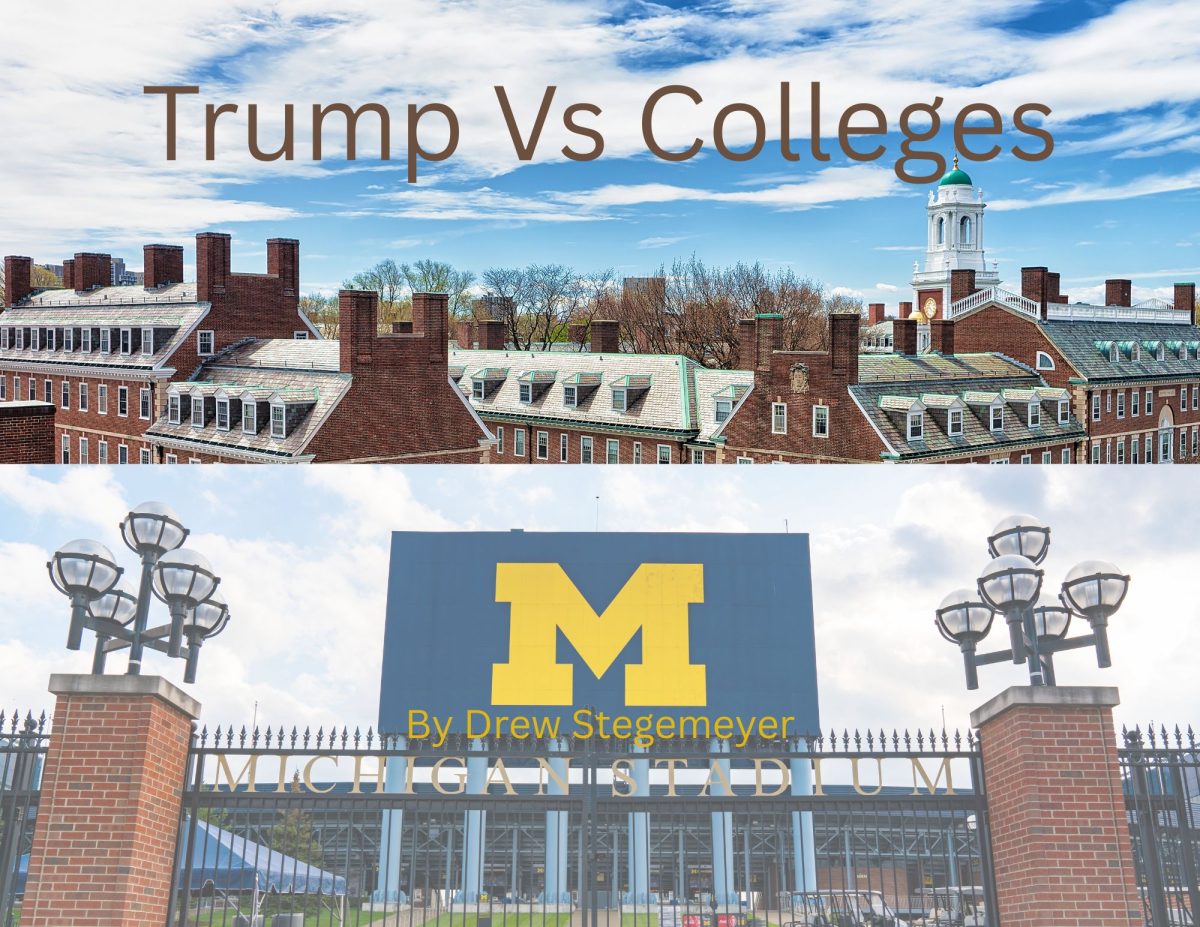Continued Israeli Genocide in Gaza
In the aftermath of the October 7th attacks, which happened due to Israeli crackdowns of important Muslim holy sites in Jerusalem, Israel has conducted the most blatant, widely publicized, and unrepentant genocide in all human history against the Palestinian people in Gaza and the west bank, easily viewable across social media anywhere in the world.
Israel’s ministry of truth and media networks across the western world from Washington to Syndney continue to repeat the same messages they’ve saying since the beginning. That Arabs are backwards barbarians, that killing them is a good thing, and that Israel’s right to defend itself also gives it the right to massacre entire nations without a second thought. As many experts, such as Professor Richard Wolff of Umass Amherst, have said, the absolute arrogance to claim that other people are savages while you yourself are the one destroying their homes, burning their land, and killing their families is one of the most terribly incredible things humans have ever done to justify their own monstrous actions.
While the west continues to support Israel’s attempts at colonialism and genocide, it is unquestionable that the rest of the world stands with Palestine, as many of the irreconcilable evils that are being done in Gaza have been done to others before, whether they be in Vietnam, China, Bangladesh, or South Africa. The world remembers, and will not let the Israeli genocide of the Palestinians be forgotten so easily.
–
The Creeping Doom in Ukraine
The war in Ukraine, which has been going on for over three years, is facing a drastic turn with the election of Donald Trump in 2024. At this point in the war, with Russian bombing having destroyed much of Ukraine’s infrastructure, especially its energy production, it’s clear that Ukraine would not be able to properly defend itself if abandoned by their allies, including the United States, leading to a victory for Russia.
Joe Biden was frequently criticized for his failing economic policy which led to a rise in market inflation, and a frequently talked about aspect of the rising costs was the various multi-billion-dollar defense packages that were awarded to Ukraine in order to pay for weapons and the maintaining of their army.
Even before Trump was elected, the Ukrainian army was already on the backfoot, being pushed back on many frontlines and their counterattacks eventually failing. Now, with Trump, who is openly pro-Russian and a selective isolationist, wanting to pull America out of wars he doesn’t approve of, now in office, the war could see a major shift.
Currently, Russia occupies four Ukrainian Oblasts, their version of states, including Donetsk, Luhansk, Kherson, and Zaporizhya. Donetsk and Luhansk, both of whom have large Russian populations and who have been fighting against the Ukrainian government since 2011, initially started the war when they rose up in 2022, with Russia soon joining the conflict on their side, technically not declaring war. Since then, Russia has officially annexed these four oblasts into the Russian Federation, but none besides Russia’s allies recognize this, with the war still going and no official treaty having been signed.
If the war was to end soon, Russia would likely insist on keeping these territories, and that may be the best deal Ukraine is going to get for the moment. If Ukraine refuses that and keeps fighting on, then it will be horrific, with more being destroyed and more people being killed, but no one can blame Ukraine for fighting against unjust conquerors. Besides the humiliating, conciliatory peace deal, Ukraine’s best hope is that the unpopularity of a long war causes some kind of regime change in Russia that will result in a more favorable peace. Given other recent world conflicts, like Iraq and Afghanistan, it’s not unreasonable to think something like that might happen, but it’s up in the air whether the costs would be worth it.
–
Assad Overthrown in Syria
In December of 2024, a huge, unexpected counterattack against the regime of former president Bashar-Al-Assad overthrew him and marked a defining shift in the Syrian civil war, which had been ongoing for almost 15 years. The Syrian rebels retook the city of Aleppo from the government before quickly moving to liberate the capital city of Damascus, after which Assad fled, and his allies surrendered almost immediately.
Though, since the first shots were fired in 2011, the Syrian rebels have never been a single, united group. In this case, the main group leading the attack was HTS, which is an Arabic abbreviation translating to “the organization for the liberation of the Levant.” The history of HTS is complicated, but I’ll do my best to explain it so that readers can understand.
HTS used to call themselves the Al-Nusra front and was affiliated with Al-Quaeda, the international Islamist organization behind the 9/11 attacks. The Al-Nusra front fought against Assad’s government in the beginning of the civil war, and when ISIS arose and invaded Syria, Al-Quaeda supported the Al-Nusra front in the fight against their rival Islamist power. After ISIS was defeated in Syria, the Al-Nusra front then split away from Al-Quaeda, instead negotiating with other smaller Islamist and rebel groups in northern Syria, renaming itself to HTS, and forming the “Syrian salvation government” as a political rival to Assad’s government.
With this united rebellion, the Syrian salvation government did achieve many impressive things not seen before in the war. Even with only a small portion of the country under their control, HTS began trading with Turkey and adopting Turkish currency, worked to ensure internet access to many of their citizens, and was able to ensure social distancing during the Covid-19 pandemic, even during weekly mass prayers. Though, while HTS has undoubtably achieved victory and proved its supremacy over the Assad regime, that does not mean the bloodshed in Syria has entirely ended. While HTS is dominant, there are still at least three other prominent rebel groups in Syria. But thankfully, in most cases, HTS has proven that they are willing to negotiate, holding peace and reunification talks with other rebels in the south and east.
There are also concerns of if the salvation government will be able to ensure Syria’s territorial integrity. Turkey, despite their diplomatic stance, still occupies large portions of northern Syria, and Israel has also seized land in the south along their own border. Both Turkey and Syria justify these occupations based on continued terrorist activity in the country, Turkey claiming that Kurdish militants are terrorists, and Israel declaring all sides, both the rebels and former Assad government, terrorists. Finally, there are also concerns over the Alawite religious group on the western coast of Syria, who, while they surrendered after he fled, were staunch supporters of Bashar-Al-Assad. After Assad’s defeat, the Alawites have frequently defied the new government, leading to harsh crackdowns and violence, though that was likely inevitable if Assad was ever defeated.
While the future is still uncertain, it’s undoubtable that the fall of Assad, who failed for over a decade to unify the people he claimed to represent, should be a positive for the region. It remains to be seen however, if the Syrian rebels who now control things will be able to effectively govern and repair their country.
–
Ongoing Civil War in Myanmar
Myanmar, a southeast Asian nation bordered by both China and India, has been in an ongoing civil war since 2021. Myanmar, previously known as Burma before its independence, has a long and complicated history with British occupation, insurgency, and military despotism. Much of this comes from how the army holds much political leverage and frequently operates independently from the government. The military of Myanmar formed during the 1940’s as a guerilla force fighting against the British, which led to them allying with the Japanese during WW2.
After Japan began losing, the Burmese army switched sides, and the union of Burma was granted independence by the British after WW2. Leadership within the new state was almost exclusively given to independence fighters in the military, leading to a transition to communism in the 60’s. Military government continued until the late 1980’s, when the military junta was dissolved and elections were held across the country.







